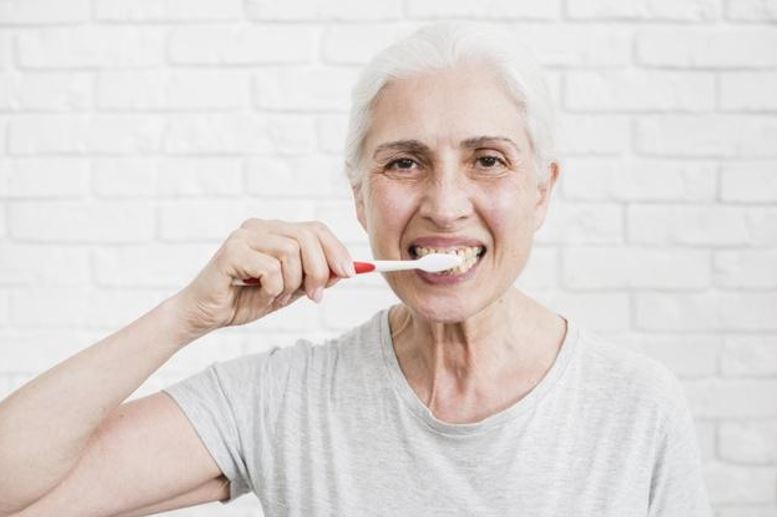

You may be suddenly getting cavities and wondering why – it’s been years since you last had to deal with them. Well, when we get older, we go through the second phase of fighting cavities for many years.
A major cause of cavities in older adults is dry mouth, typically side-effects from over 500 medications – some of them which include medications for depression, asthma, anxiety, high blood pressure, pain or high cholesterol, Alzheimer’s and Parkinson’s disease.
If you have dry mouth, it is essential that you let your dentist know about the medications you currently take – your dentist can make recommendations to relieve your dry mouth and prevents cavities.
What are the common dental health problems among older adults?
- Tooth loss: according to the National Institute of Dental and Craniofacial Research, 27.27% of adults over the age of 65 have no teeth left. And on average, 18.9 of teeth is what seniors over the age of 65 who still have some teeth left – have. In order to reduce tooth loss as you get older, maintaining proper hygiene and oral care is essential.
- Bad breath: older adults are more prone to bad breath (halitosis) than younger adults. This is usually brought on by the new social situations they experience that can make them more socially isolated.
- Poor dental care: older adults are typically at risk of experiencing poor denture care which can cause various oral health problems. Dentures are a popular method for treating tooth loss but they also require the same amount of treatment that natural teeth get.
4.Root decay: these are caused as a result of the root of a tooth being exposed to decay-causing bacteria. When the root is exposed because gum tissue pulls away from the tooth, they become more prone to decay because they have no enamel to protect them.
- Reduced sense of taste: dentures have been linked to sensory loss.
- Mouth pain: untreated toothache or any other type of pain in the mouth can make it very difficult to eat. This may cause you to avoid certain types of food or reduce the consumption of your calories to prevent discomfort which has an impact on your overall health.
- Gum disease: this is an oral health condition that affects gum tissues that hold the teeth in place. It occurs when plaque buildup gets under and along the gumline. Improved oral hygiene can help reverse minor gum disease – flossing and brushing every day and regular visits to the dentist can help in the prevention of gum disease.
- Darker teeth: to some extent, darker teeth are caused by changes in dentin ( bone-like tissue that underlines the enamel) but in most cases, it is caused by a lifetime of consuming beverages that cause stains like coffee and tobacco.
Darker teeth are also caused by the stain of the outer layer of enamel that allows the darker yellow dentin to show through. In addition, darker teeth may be a sign of a more serious problem and a visit to the dentist should be scheduled.
Preparing for dental care in retirement
A lot of retirees do not realize that Medicare doesn’t cover routine dental care. So, this often comes as a shock and can lead to poor oral health. To avoid this, begin to plan for dental health expenses before you retire, so your dental health doesn’t suffer once you are on a fixed income. You can start at organizations like the AARP who provide supplemental dental insurance plans for their members.
Another option that you could try is discount dental plans that come with the lower monthly fees than traditional dental insurance – you choose a dentist within the plan network who has agreed to provide certain services for anywhere between 10 to 60% lesser than the average fee. This fee is paid out of your pocket and with no need for you to file a claim.
Alternatively, you can use localized services such as Tiger Smile Family Dentistry that offer less expensive options compared to dental plans. Yet another option is to search for a dental plan that works at the National Association of Dental Plans website. A lot of dentists offer low interest or no interest financing plans that may be a great option – than paying for dental work on a household credit card with high-interest rates. However, if you have serious concerns about being able to continue your dental care when you have a limited income, you should talk to your dentist, they may be able to proffer solutions.
